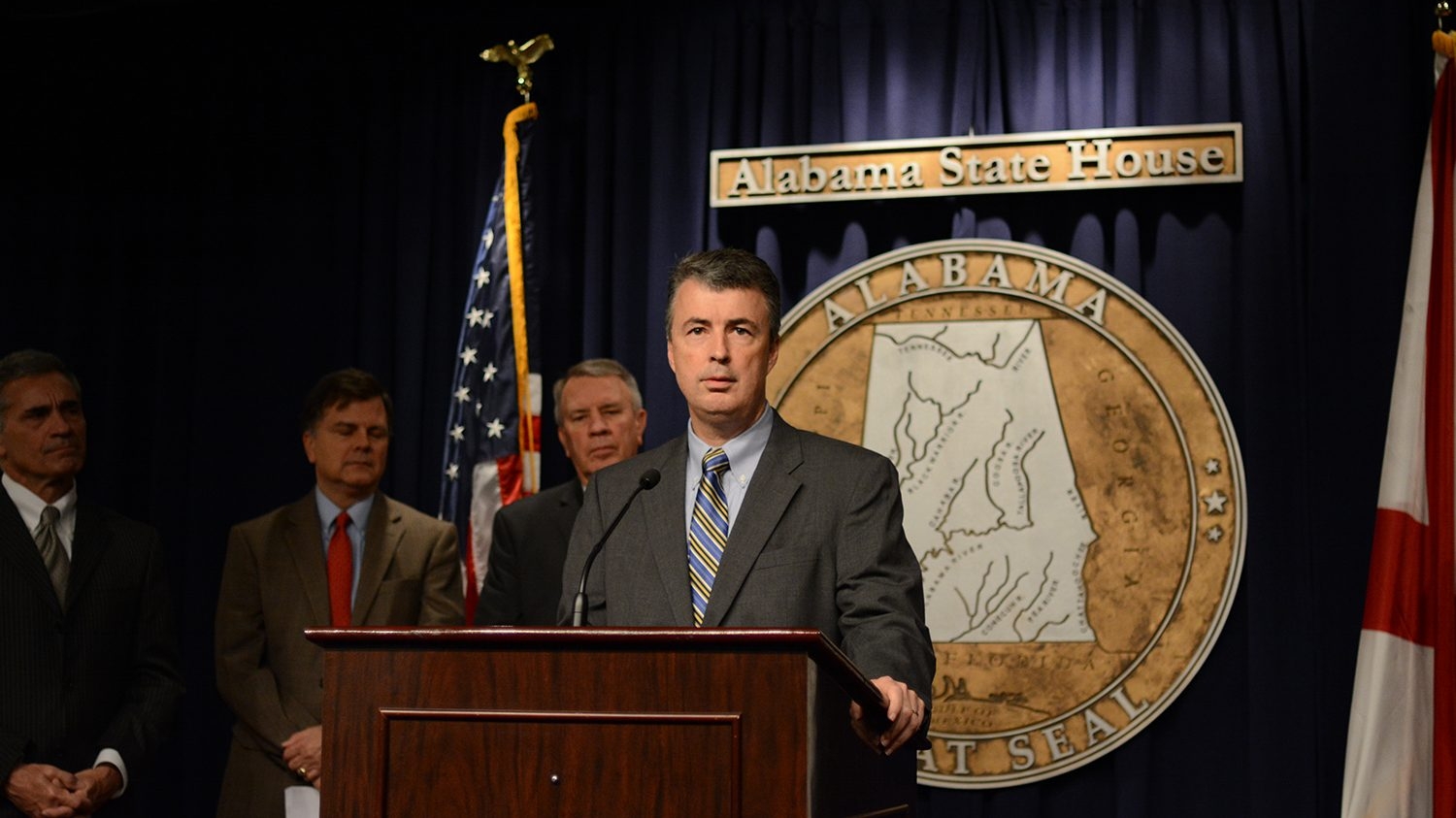Steve Marshall is going to get away with it.
In a response to questions from APR, Gov. Kay Ivey’s office said this week that it won’t be moving forward with an investigation into Attorney General Marshall’s questionable campaign contributions that appeared to violate Alabama’s ban on political action committee transfers. Instead, Ivey said she “welcomes … a legislative solution” for strengthening Alabama’s campaign finance laws.
I wasn’t aware they could legislate having a spine.
That’s the only option for the Legislature, because there is no problem with the law. There is no ambiguity. There are no holes. There is no confusion.
This is all really quite simple: Steve Marshall violated Alabama’s ban on PAC-to-PAC transfers — blatantly and shamelessly — and the people who should hold him accountable for it aren’t.
Because they are playing partisan politics. Because they had higher ambitions. Because the heat was just too much. Because they’re scared.
Here are the key facts:
- Alabama bans PAC-to-PAC transfers, and the law states plainly that it applies to both in-state and out-of-state PACs.
- Marshall accepted $735,000 from the Republican Attorneys General Association PAC, which conducted PAC-to-PAC transfers.
- Marshall was alerted to this and informed that the Alabama law provides 10 days for a candidate to return the funds or face a felony penalty with up to a 20-year prison sentence for each violation.
- Marshall laughed and spent the money on his campaign.
These are the bare bones facts, laid out as plainly and simply as they can be. And to be clear, laying them out in such a manner is not intended to mask some complexity that makes what Marshall did understandable.
When the original ethics complaint was filed against Marshall over this issue — filed by his Republican challenger — Marshall was forced to put on paper his defense for accepting the funds and keeping the funds.
His only real defense was that the RAGA PAC wasn’t subject to Alabama laws, which made it legal for RAGA to participate in PAC-to-PAC transfers and legal for it to donate to Marshall.
And Marshall claimed that Alabama law didn’t specifically require candidates to return donations from a federal PAC.
I would like to pause here for just a moment and ask that you consider what’s being said here. The state’s attorney general is arguing FOR a loophole in the law.
Oh, and to increase the hypocrisy of it: Just a few months earlier, Marshall argued in a brief submitted to the U.S. Supreme Court that Alabama’s PAC-to-PAC transfer ban was so vital, so important that it was the “only legal protection standing between Alabama voters and the reality or appearance of quid pro quo corruption.”
He was right the first time. The PAC-to-PAC transfer ban was put in place to ensure citizens knew who was contributing to candidates. The PAC-to-PAC transfers mask that by shuffling money from one to another, co-mingling funds from other donors, and then transferring it to candidates.
Which is how $735,000 landed in the Alabama Attorney General’s campaign account and no one knew the original source.
Was it gambling interests? Was it Planned Parenthood? Was it anti-second amendment groups? Was it George Soros?
No way to know. Because Marshall violated Alabama’s law.
But don’t take my word for it. Take the word of the only judge to review the facts of the case and make a ruling based on the evidence — former Montgomery County Circuit Court Judge Charles Price.
Price serves on the Alabama Ethics Commission now, and he was one of two votes on a motion saying there was “ample evidence” that Marshall violated the law. That vote would have sent the allegations to a local district attorney’s office for prosecution.
But instead, three of Price’s colleagues decided the heat was too much for them. They couldn’t bring themselves to clear Marshall, but they let him off the hook just the same, voting that there was “insufficient evidence” to forward to a DA.
However, there was still a DA out there with authority to investigate and put the case before a grand jury. A DA with a credible complaint filed by two practicing attorneys in the state.
For weeks, rumors swirled that Montgomery DA Daryl Bailey was going to do what the Ethics Commission wouldn’t — take the charges against Marshall before a grand jury and see what regular citizens thought about it all.
In the end, Bailey bailed too. Citing several conflicts of interest, Bailey recused his office and laid it all at Ivey’s feet. And the governor has now punted too.
In fairness to Ivey, this shouldn’t be her problem. It shouldn’t fall to the governor to pick up the pieces and do the job that all these other people should have done. And that’s particularly true considering that those people not doing their jobs made the whole thing worse.
There is now a gaping hole in Alabama’s law banning PAC-to-PAC transfers, and state PACs should be scrambling to create new federal PACs. Then they’ll be free to move money around left and right, unimpeded by those pesky disclosure laws.
That way, the average voter will be absolutely clueless. The special interests can dump money in and buy up everybody running. And the candidates can secretly accept massive amounts of money from all sorts of shady sources.
Just like Steve Marshall, the state’s AG, just did.

















































